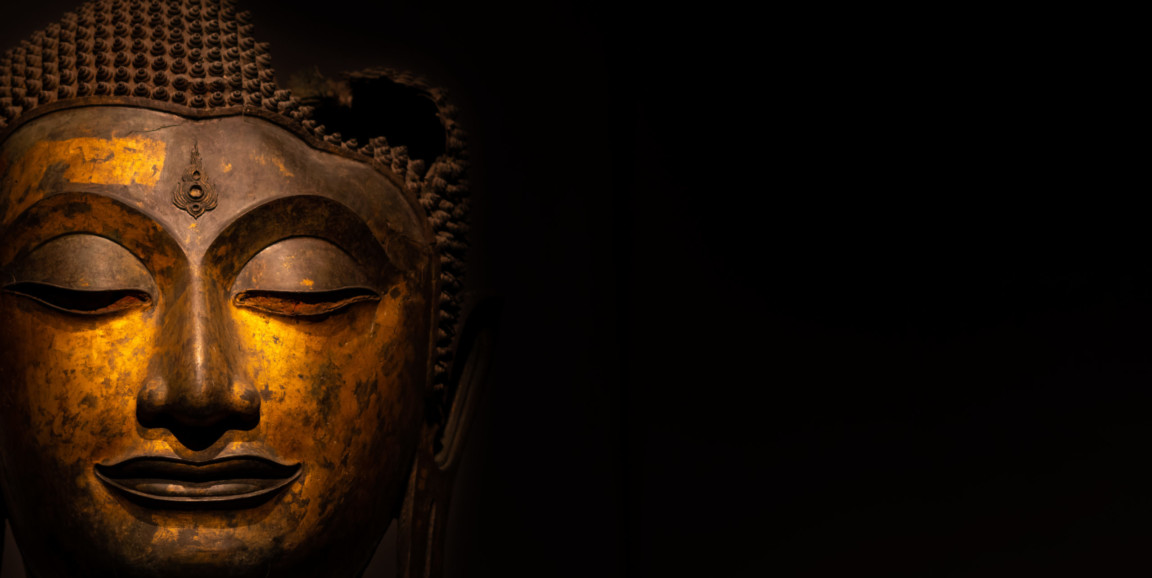Unconventional Paths: Stories of Stanford Medicine faculty, researchers and physicians whose journeys into medicine followed nontraditional routes
Chwen-Yuen Angie Chen grew up surrounded by doctors.
"My grandfather was a physician; I have uncles and great uncles and cousins who are physicians, and my family in Taiwan even owned hospitals," said Chen, MD, a clinical associate professor in primary care and population health at the Stanford School of Medicine. "There was nothing else expected of me, except that I would go to medical school."
But when Chen dropped out of high school at age 16 to get her GED, a medical career was the last thing on her mind. Instead, she ended up in film school at New York University and eventually followed her passion for religious studies to a Buddhist monastery in Nepal, where she ordained as a nun.
She never expected Buddhism to lead her back to medicine, but the more she studied the Buddha's core teachings on finding an end to suffering and purifying negative past karma, the more committed she became to living a life of service. After five years as a nun, Chen enrolled in medical school at the age of 31, determined to help relieve the suffering of others.
"I came to medicine through Buddhism, but also through my own recovery journey," said Chen, who last month was awarded the 2022 Resilience Award from the national Women in Medicine Summit.
A storied past
Chen's early life was filled with challenges, including several traumatic events and a struggle with substance use that resulted in a period during her late teens when she was briefly transient and unhoused. But none of this stopped her from getting her GED and enrolling in NYU, where a roommate introduced her to the art of cinematography.
"I was helping with all these film projects, carrying my roommate's equipment around and helping her shoot scenes," said Chen, who became so enthralled with looking at the world through a camera lens that she requested a transfer to the film school.
After graduating with a specialty in cinematography, Chen worked as a camera woman for several years. She was drawn to Buddhism while filming her grandmother's funeral and cremation in Taiwan.
"The process involved sitting vigil next to my grandmother's body for two weeks, ushering her through the Buddhist stages of death and making offerings," Chen said. "I was filming everything, so I spent a lot of time with the nuns there. One of them said to my mother, 'Your daughter is going to be ordained one day.'"
Chen had always been interested in religion and, in high school, had even considered becoming a Catholic nun. But during her time in Taiwan, she became fascinated with the Buddhist philosophy pertaining to knowledge and existence, and what happens at the time of death. Upon her return to New York, she continued studying Buddhism and, on one pivotal occasion, participated in a sunrise meditation service in Central Park with the Dalai Lama.
Journeying to Nepal
While Chen was shooting independent films and television shows, as well as exploring Buddhism, she also worked as a substitute teacher in the New York City public schools. One of her assignments involved teaching entirely in Mandarin, to students who spoke mostly Cantonese.
"I thought to myself, if I can learn biology in Mandarin and teach it at this underfunded, at-risk school, then why couldn't I learn this in greater detail for my own education?" Chen said.
When budget cuts dissolved her teaching job, she saved enough money to move to Nepal, where she was eventually ordained as a Buddhist nun. Her new life included symbolic acts of renunciation, such as shaving her head and wearing robes, and she spent many of her days meditating in relative isolation.
"I gained this new sharpness of mind," Chen said, and as she examined some of the darker parts of her past, she realized that she wanted to live a life of service, helping others who were suffering in the same ways she had.
'No matter what, you're going to be a doctor'
When Chen returned to the United States, she initially planned to apply to nursing school. Daunted by memories of failing calculus the first time around, she told herself she'd try just one science course at the local community college, to see if she could pass.
"But then I got an A in chemistry, so I took another class ... and then another and another." When she surprised herself by scoring well on the MCAT, Chen thought, "I guess this is really going to happen."
However, going to medical school in her 30s was a shock. "Before medical school," Chen said, "I swam on a master's team, played in an orchestra, worked part time, studied, and had significant supports and friendships," she said. "It was a well and balanced life before medicine, but then I went to medical school, where I became severely unwell."
Overwhelmed by the intense workload in her first year and alienated by the level of social drinking among her peers, Chen became severely depressed. She credits the supportive leaders at UC Davis with helping her stay the course. "I will never forget the dean of student affairs leaving a message on my answer machine, saying, 'No matter what, you're going to be a doctor, and we're going to get you through this.'"
A philosophy of recovery
After completing her residency in internal medicine at the Santa Clara Valley Medical Center, Chen became board certified in addiction medicine in 2010. She says her experience as a nun directly impacts the way she interacts with patients, because Buddhism and addiction medicine share one of the same goals: to find freedom from suffering.
"I try to infuse spirituality and mindfulness into my practice whenever patients are open to it," said Chen, who came to Stanford Medicine in 2015. "I tell them, 'Pain is inevitable. We all experience pain, but suffering is optional.'" Sometimes alleviating suffering means taking a medication, she said, but other times it means working with a therapist, attending a support group, or making lifestyle changes. Chen also teaches meditation classes for her patients twice a month.
In addition to her clinical and teaching duties, Chen serves on the Physician Wellness Committee and recently took over as chair of the Stanford branch of the CHIME Opioid Task Force. She also advocates for improved policies at the state level for physicians struggling with mental illness and substance use.
For example, she is advocating to change the application for provisional licensure, which requires new doctors to disclose if they've ever undergone treatment for mental health issues or substance use. "I've come across residents who've said, 'I'd love to get treatment, but I'm afraid to get it, because then I'd have to check off that box,'" Chen said. "Getting change to happen in this area has been slow. The appetite to help impaired physicians is not there. The approach is more punitive."
She hopes her advocacy efforts will help break the culture of silence around physician mental health and substance use. "Recovery is about transformation," Chen said, "and none of us can take that journey alone."
Read more Unconventional Paths stories here.
Photo by mai111.






